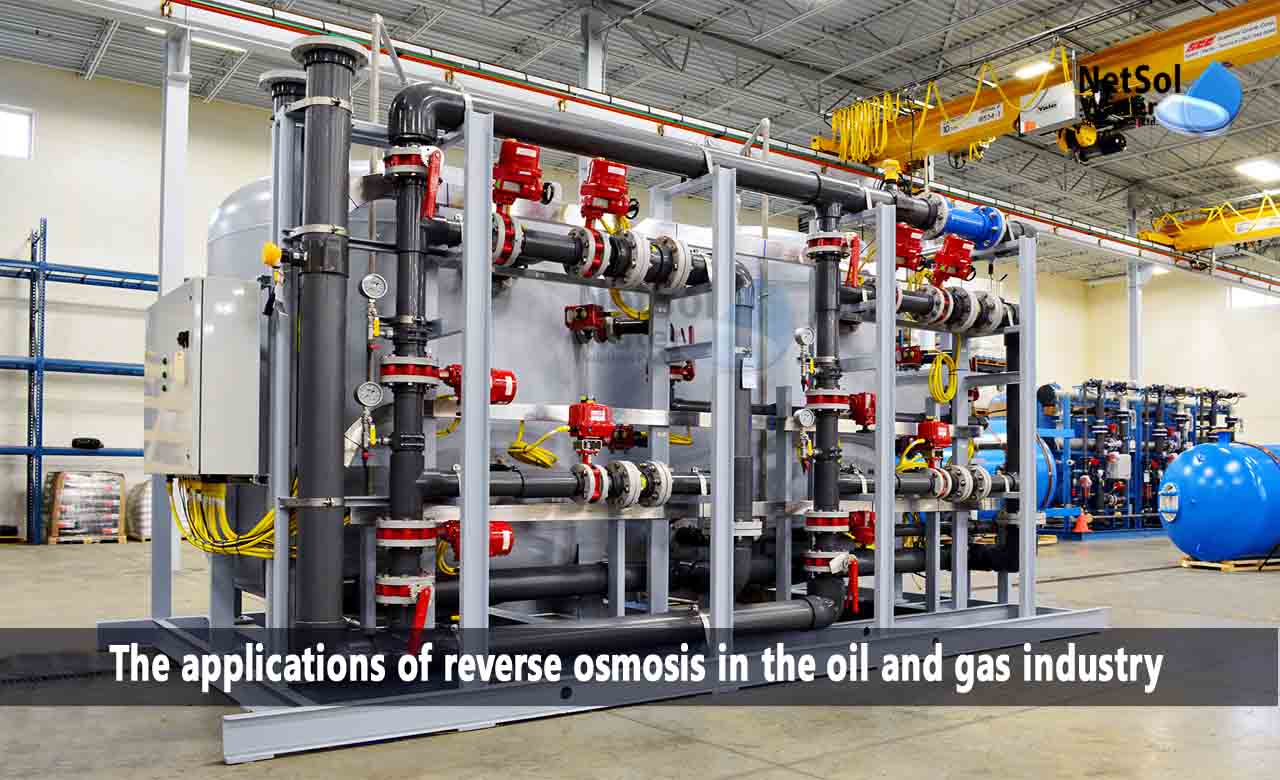Introduction
In the oil and gas industry, the production of oil and gas is often accompanied by the generation of large volumes of wastewater, known as produced water. Managing and treating this wastewater is crucial for environmental sustainability and regulatory compliance. Reverse osmosis (RO) has emerged as an effective technology for treating and reusing oil and gas produced water. In this blog, we will explore the applications of reverse osmosis in the oil and gas industry, highlighting its benefits in treating and reusing wastewater.
Understanding Produced Water:
Produced water refers to the water that is extracted along with oil and gas during the production process. It is a complex mixture that contains dissolved and suspended solids, hydrocarbons, heavy metals, and other contaminants. Due to its composition, produced water poses environmental risks if not properly treated and managed.
What are the applications of RO Plant in the oil and gas industry?
Reverse osmosis is an advanced water treatment technology that can effectively remove contaminants from produced water, making it suitable for reuse or safe discharge. Here's how reverse osmosis is utilized in treating oil and gas produced water:
1. Pre-treatment: Before subjecting the produced water to reverse osmosis, pre-treatment is typically employed to remove larger particles, oil, and other substances that may foul or damage the RO membranes. Pre-treatment processes may include filtration, coagulation, flocculation, and sedimentation.
2. Pressure application: The pre-treated produced water is pressurized and passed through a semi-permeable membrane in the reverse osmosis system. The membrane selectively allows water molecules to pass through while rejecting dissolved solids, contaminants, and some organic compounds.
3. Separation of permeate and concentrate: As the produced water passes through the reverse osmosis membrane, it separates into two streams: permeate and concentrate. The permeate is the purified water that has passed through the membrane, while the concentrate contains the rejected contaminants and concentrated salts.
4. Post-treatment: Depending on the specific requirements, post-treatment processes may be employed to further polish the permeate and adjust its quality. These processes can include disinfection, pH adjustment, or additional filtration steps to ensure compliance with specific water quality standards.
Benefits of Reverse Osmosis in Produced Water Treatment:
1. Water reuse and conservation: Reverse osmosis enables the treatment and purification of produced water, making it suitable for reuse in various oil and gas operations. By reusing water, companies can significantly reduce freshwater consumption, conserve resources, and minimize the environmental impact of their operations.
2. Compliance with regulations: Stringent regulations govern the discharge of produced water into the environment. Reverse osmosis can effectively remove contaminants, ensuring compliance with water quality standards and minimizing the environmental impact of wastewater discharge.
3. Cost-effective solution: Implementing reverse osmosis for produced water treatment can offer cost savings in the long run. By reusing treated water, companies can reduce freshwater sourcing costs, decrease disposal costs associated with produced water, and potentially even generate revenue through the sale of recovered resources.
4. Enhanced operational efficiency: Reverse osmosis provides a reliable and consistent method for treating produced water. It can remove a wide range of contaminants, including dissolved solids, hydrocarbons, and heavy metals, improving the efficiency and performance of downstream processes such as oil and gas separation.
Challenges and Future Outlook:
While reverse osmosis is an effective technology, it does face certain challenges in treating oil and gas produced water. High concentrations of scaling or fouling agents in the water, such as dissolved solids or oil, can impact the efficiency and lifespan of the RO membranes. Additionally, the disposal of the concentrate or brine generated during the reverse osmosis process requires proper management to minimize environmental impacts.
To address these challenges, ongoing research focuses on improving membrane durability, optimizing pre-treatment processes, and developing innovative approaches for brine disposal or resource recovery.
Conclusion
Reverse osmosis has emerged as a powerful tool in treating and reusing oil and gas produced water. By effectively removing contaminants and recovering purified water, reverse osmosis contributes to environmental sustainability, regulatory compliance, and cost savings in the oil and gas industry. As technology continues to advance, reverse osmosis will play an increasingly significant role in achieving efficient and responsible management of produced water, ensuring a more sustainable future for the industry and the environment.
Netsol Water is Greater Noida-based leading water & wastewater treatment plant manufacturer. We are industry's most demanding company based on client review and work quality. We are known as best commercial RO plant manufacturers, industrial RO plant manufacturer, sewage treatment plant manufacturer, Water Softener Plant Manufacturers and effluent treatment plant manufacturers. Apart from this 24x7 customer support is our USP. Call on +91-9650608473, or write us at enquiry@netsolwater.com for any support, inquiry or product-purchase related query.



